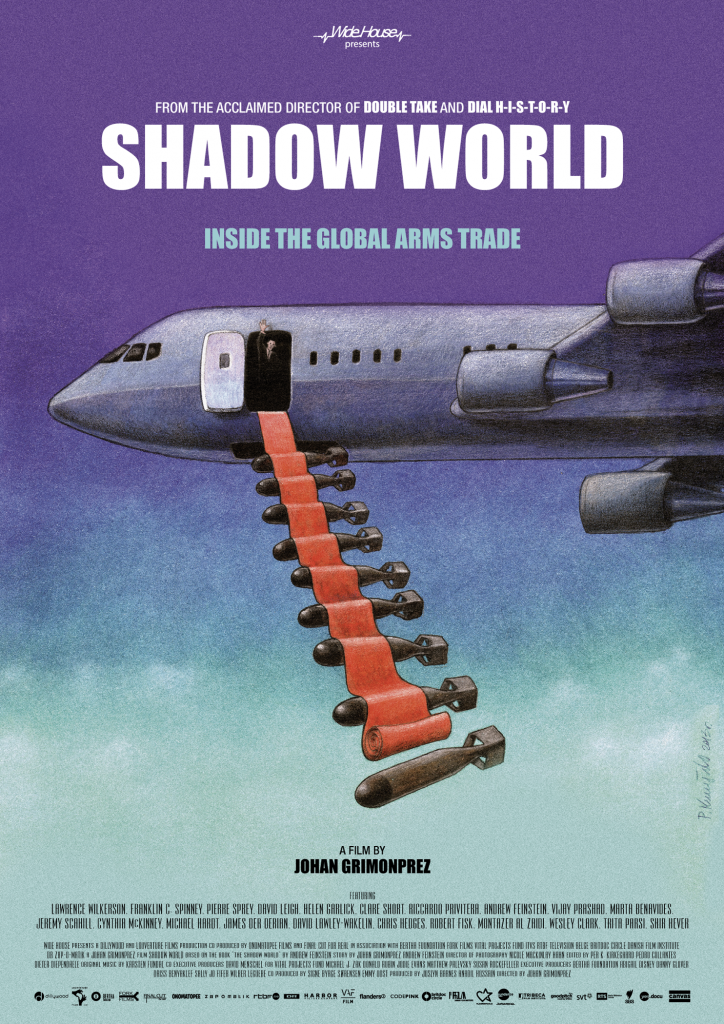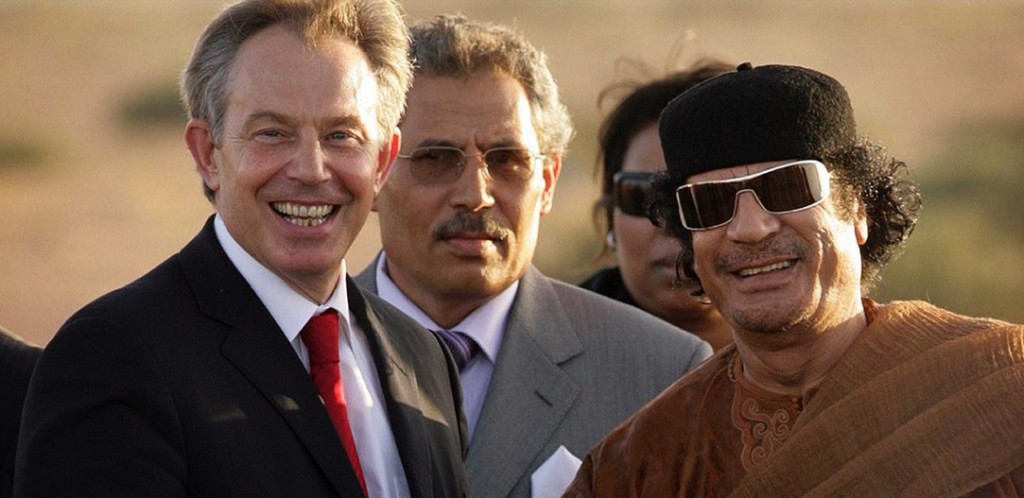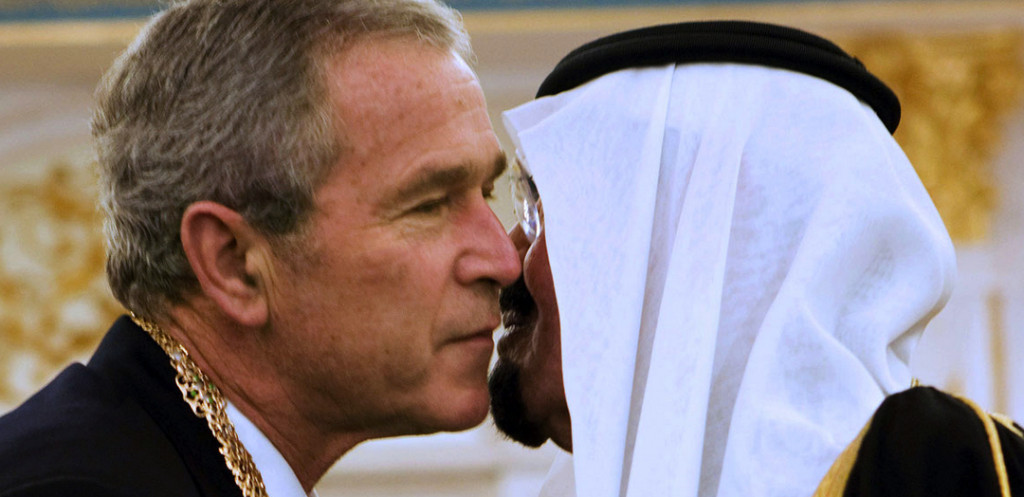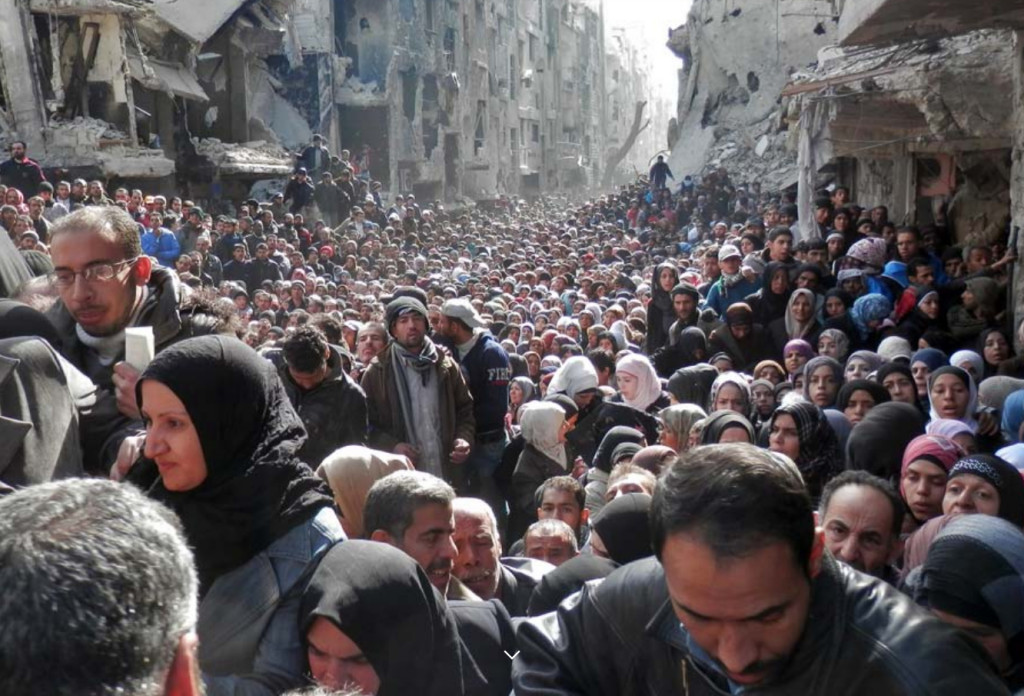 Andrew Feinstein, the writer behind the book, and now the film, Shadow World, talks about lifting the lid on the international arms trade and revealing it’s links to governments at the highest levels.
Andrew Feinstein, the writer behind the book, and now the film, Shadow World, talks about lifting the lid on the international arms trade and revealing it’s links to governments at the highest levels.
I interviewed Andrew Feinstein a year ago at the UK premiere of Shadow World at Edinburgh International Film Festival. There the film picked up the award for Best Feature Documentary. I held off publication, waiting for news of its UK release in cinemas, and a year on, I am still waiting. Despite screening at the major international festivals, winning awards, and securing broadcast deals around the world (Shadow World will screen on 20th November 2017 on PBS in the U.S.), to date, Shadow World has only been shown at a smattering of cinemas in the UK and has not been picked up by any of the UK broadcasters. With Trump signing a colossal $110 billion arms deal with Saudi Arabia, it seems time, general release or not, to talk about this shocking and incredibly important film, and, to possibly ask why is it not widely available in the UK. Here is the interview from June 2016.
Andrew Feinstein ushers me into the hallway with a whisper – I glance about nervously. Feinstein smiles and explains in his lilting South African accent that Johan Grimonprez, the director of Shadow World, has just flown in from New York and is asleep in the next room.
We go into the living room of this sun filled magnolia and faux leather apartment that is his base while he is here in Edinburgh. It is not the backdrop I had imagined for discussing the international corruption orchestrated by our governments.
Feinstein wastes no time in getting to the facts. We are not talking the occasional back hander here and there. We are talking massive, huge. The scale, if you would like to visualise it, of an Airbus jet.
A jet, to be more precise, painted in the colours of the Dallas Cowboys American football team, the favourite team of Prince Bandar. Prince Bandar was gifted this jet by the British arms company BAE Systems as part of their arms deal with Saudi Arabia. And this, it turns out, is just the tip of the iceberg.
How did he stumble across this, I ask. Self effacing, Feinstein prefers to talk about the issues rather than his own story. But it turns out to be quite a story, which starts in South Africa.
Feinstein was in the ANC, in the Public Accounts Committee, investigating past spending of the South African government. The job had been going well with excessive spending highlighted and those responsible held to account, until he discovered a huge bill paid by the ministry of defence.
The government had bought fighter jets from BAE Systems that cost more than double the price of the jets that the military had asked for. The price tag was so high that cost was actually removed as a category from the procurement process, meaning the decision of who to award the contract to could not be made on the basis of cost.
Why? Officials and politicians were receiving millions of dollars in bribes. They received about £115 million from the BAE systems jet deal, according to the UK’s Metropolitan Police, which contributed to the overall figure of $300 million dollar’s worth of bribes from all five arms contracts the government signed. They therefore wanted to push the deal through no matter the cost to the tax payers, who were the people footing the ($10 billion) bill.
And this is not some abstract cost Feinstein points out. At the time that this arms deal was going through Thabo Mbeki claimed that the government could not afford antiretroviral medication for the population. Five years after that decision, a Harvard study estimated, conservatively, that if it had, 365,000 lives would have been saved and it could have prevented over 30,000 babies being born HIV positive every year. About half of the jets they purchased, Feinstein states, have barely left the tarmac.
Unlike past investigations, Feinstein found this one repeatedly blocked, and was eventually told to drop it or be thrown out of Parliament by his party. He admits that he did think about letting it go, but decided he couldn’t.
So he left the ANC and followed the trail of corruption to London. There, armed with the documents he had accessed during the investigation, he travelled Europe and the US, persuading government officials, prosecutors, arms dealers and whistle blowers to talk about the elements that they knew about. Bit by bit, the different pieces fitted together to reveal not only Blair’s involvement in the South African deal (according to Feinstein he personally made a number of trips to South Africa to sell it), but also in the jet sent to Prince Bandar (said to have been given to him on his birthday in 1998 and which, at least until 2007, Feinstein claims, the British public paid for the running and maintenance of) along with £174 million dollars in slush funds that were spent on prostitutes, foreign trips for mistresses, shopping sprees for members of the Saudi royal family, and cash that ended up in the bank accounts of two of the 9/11 bombers.

And here’s the obvious but terrible point, this corruption in the arms trade leads not just to the huge waste of tax payers’ money and the denigration of vital services, but to the perpetuation of conflict and death. ‘Saudi Arabia is this big ally of the west’ Feinstein says, eyes widening in disbelief, ‘yet the government of Saudi Arabia beheads every year more people than Isis, Al Qaeda and all of those networks have beheaded in their history’. It is also, he points out, currently bombing Yemen and in the process, killing many civilians and destroying the country’s infrastructure. ‘It’s just one other aspect of the absurdity of the global trade in weapons that rather than bolstering the security of ordinary people, it does the opposite. It undermines that very security.’
This can be seen most clearly in regard to fuelling terrorism, Feinstein claims. Saudi Arabia was central in channeling American money to the mujahideen in Afghanistan when Afghanistan was occupied by the Soviet Union. And those same mujahideen became the Taliban and Al Qaeda. ‘The tragedy of that is you look at the situation in Syria today and the UK And the US are making the same mistakes. They throw money and weapons at all of these groupings, discovering just a few months later that these groupings are not the sort of people they should be supporting. And these conflicts go on for years, become even more bloody and they act as a fertile breeding ground for fundamentalist extremism.’

These consequences, he argues, are not the unfortunate outcomes of a corrupt military industrial complex, but an integral, driving feature of it. Because in order to keep on generating money, one needs to have conflicts and if you find one that is potentially never ending, like a war on terror (how do you know when that has ended?), then that gives you endless justification for their purchase.
‘When you are talking about the British and US governments who have been involved in these conflicts for as long as anyone can remember, then it can’t be put down to naivety. It has to be put down to a stubborn refusal not to learn from history, and why is there that stubborn refusal? It’s because the system and nature of the global arms trade supports the tiny elite who control governments, who control our economies – the one percent who Occupy Wall Street spoke about. It works incredibly well for them as it’s a very effective way of circulating money between the private sector and the politicians and political parties’ How? Because, Feinstein claims, it all takes place behind a veil of secrecy in the name of national security.

‘National security is an important consideration’ I venture, mentioning that the recent investigation into the deal between BAE Systems and Saudi Arabia by the Serious Fraud Office was called off because Saudi Arabia had said that they would stop intelligence sharing with the UK if it went ahead. ‘That’s a lie’ Feinstein says, matter-of-factly. ‘Could Saudi Arabia honestly stop intelligence cooperation with Britain? There’s no way, for a whole range of reasons, the most important of which is that Saudi Arabia doesn’t have the military personnel to protect itself, so them saying they will stop intelligence cooperation is effectively them saying we will stand on our own, if anyone wants to topple us, come on in and topple us, so it’s an absolute nonsense.’
He points out that we do not know what Saudi Arabia said to the British government, and that it was far more likely that they would have had a conversation in which they said that the details of the arms deal were embarrassing and please could the UK intervene to stop it being made public. ‘If however,’ Feinstein continues, ‘Prince Bandar did make that threat to the UK, a high court judge has pointed out that he should have been prosecuted in the UK, for threatening the security of our citizens, and that if our prime minister acquiesced to those sort of threats, it is very questionable that he is competent to hold office’.
For anyone who thinks that these close ties between government and the military industrial complex were the preserve of Blair’s and Bush’s administrations, Feinstein has words of warning: Hillary Clinton has received more money in donations from arms companies than any other candidate in the early stages of this election and by its end will likely have received more than any other candidate in history.
‘Aren’t you a little bit . . . scared? These are powerful people you are talking about.’ Being high profile, Feinstein replies, gives him protection. He mentions one hand-delivered death threat from an arms dealer but states that governments generally just hope he will be quiet. It’s the whistle blowers, he says, who are the ones who risk everything. Chillingly, Feinstein points out that the Obama administration has prosecuted more national security whistle blowers than all other previous administrations in the US put together. ‘They are the people who are letting us glimpse behind the secrecy curtain and do this sort of work. They are the real heroes.’
For those of us feeling a mixture of rage and despair right now, is there anything that we can do, I ask. Yes, lots, is the reply.
We can call on councils and universities to stop investing in the arms trade. ‘They invest huge amounts of money in defence companies, because they say they get quite good returns. Now the reality is’ Feinstein comments, ‘when these companies do get good returns it’s because there is so much public money being invested in them in the first place; tax payers’ money’.

We can get involved with CAAT (Campaign Against Arms Trade) who run a series of campaigns. Right now they are arguing in court that the British Government is breaking its own laws by exporting weaponry to Saudi Arabia because Saudi Arabia is using that weaponry in bombing Yemen.
From October, there will be a series of campaigns, one of which will be around the purchase of the F35 jet, costing the US taxpayer $1.5 billion to build and maintain, and which, according to Feinstein, many defence experts deem to be completely inappropriate to any current conflicts or conflicts likely to be fought for generations to come ‘It really is the poster child of fruitless wasteful expenditure that keeps this money in circulation’.
What he is really interested in now is using the film to start a series of political discussions about the choices governments make and how ordinary citizens can affect those choices and about the nature of transparency and accountability. He has just got back from South Africa where they took the film to film festivals and townships and informal settlements. ‘Security isn’t just about conflict, it is about sustainable development, economic sustainability, and less inequality as all of these things reduce the likelihood of conflict and contribute as much to security as the size of your military.’
The film’s website: shadowworldfilm.com lists a number of the groups working on these issues. Feinstein says that anyone interested should join the mailing list and is welcome to contact him though the site.

Update:
On 10th July 2017 the High Court decided that the government’s decision to arm Saudi Arabia is lawful, but CAAT intend to appeal this judgement. Some of the evidence in the case was presented in sessions closed to CAAT, the press, and the public, on national security grounds.
On the other side of the Atlantic, Trump, in Feinstein’s words, ‘has taken the arms trade craziness a step further by implementing a significant increase in defense spending and concluding a mammoth $110 billion arms deal with Saudi Arabia (which could rise to $300 billion), despite the Saudis continue to murder innocent civilians in bombing raids in and blockades of Yemen’.
Genevieve Bicknell




